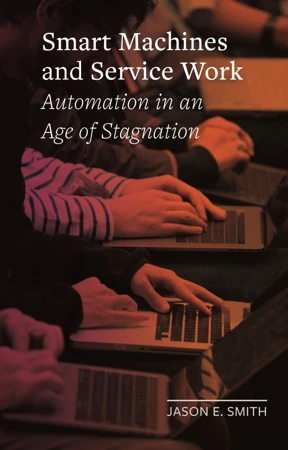Smart Machines and Service Work – Automation in an Age of Stagnation

Blurb
In recent decades digital devices have reshaped daily life, while tech companies’ stock prices have thrust them to the forefront of the business world. In this rapid, global development, the promise of a new machine age has been accompanied by worries about accelerated joblessness thanks to new forms of automation. Jason E. Smith looks behind the techno-hype to lay out the realities of a period of economic slowdown and expanding debt: low growth rates and an increase of labor-intensive jobs at the bottom of the service sector. He shows how increasing inequality and poor working conditions have led to new forms of workers’ struggles. Ours is less an age of automation, Smith contends, than one in which stagnation is intertwined with class conflict.
Book summary
In this new book, Smith returns to Solow’s classic “productivity paradox”, which essentially states that we can see automation everywhere, like the spheres of leisure, sociality, and politics, but not in the productivity statistics. He examines why labor saving automation in the service age in the Global North has not been accompanied by increased productivity, as was predicted. The book convincingly argues that the reasons for this are threefold: that many of the jobs now being automated require an intuitive, embodied, and socially mediated form of knowledge that even the most advanced machine learning algorithms cannot learn; that in the advanced capitalist world, cheap labor is surfeit which has all but removed the incentive for firms to invest their capital in soon-to-be-obsolete machinery to replace them; and that there is a crisis of profitability rooted in the decades-long expansion of “unproductive” labor, that is, labor engaged in supervisory or circulatory activities. It is a great book that critically analyzes potential automation of service work in the world of COVID-19 where frontline workers are sought to be replaced by machines for the safety of the workforce, or where increasing labor militancy is often threatened with automation.

